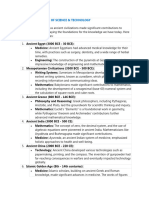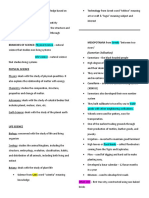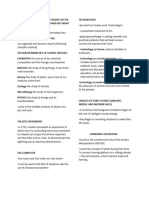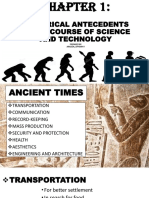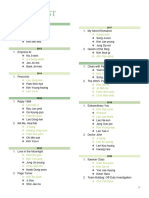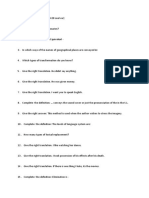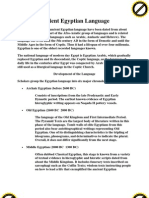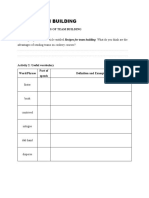0% found this document useful (0 votes)
30 views3 pagesContributions of Ancient Civilizations
The document summarizes the major contributions of six ancient civilizations to science and technology:
The Sumerians developed the first writing system, used copper tools, invented the wheel, and made advances in mathematics, irrigation, astronomy, and weapons. The Babylonians made important discoveries in astronomy and mathematics and developed advanced farming techniques. The Romans constructed extensive road networks and aqueducts, invented concrete, and developed medical tools and the Julian calendar. Egyptian civilization showcased advances in mathematics, metallurgy, writing, astronomy, medicine, and architecture such as pyramids. Indian civilization developed the decimal system, concept of zero, atomic theory, astronomy, medicine, grammar, yoga, and irrigation. Chinese civilization invented paper
Uploaded by
justineCopyright
© © All Rights Reserved
We take content rights seriously. If you suspect this is your content, claim it here.
Available Formats
Download as DOCX, PDF, TXT or read online on Scribd
0% found this document useful (0 votes)
30 views3 pagesContributions of Ancient Civilizations
The document summarizes the major contributions of six ancient civilizations to science and technology:
The Sumerians developed the first writing system, used copper tools, invented the wheel, and made advances in mathematics, irrigation, astronomy, and weapons. The Babylonians made important discoveries in astronomy and mathematics and developed advanced farming techniques. The Romans constructed extensive road networks and aqueducts, invented concrete, and developed medical tools and the Julian calendar. Egyptian civilization showcased advances in mathematics, metallurgy, writing, astronomy, medicine, and architecture such as pyramids. Indian civilization developed the decimal system, concept of zero, atomic theory, astronomy, medicine, grammar, yoga, and irrigation. Chinese civilization invented paper
Uploaded by
justineCopyright
© © All Rights Reserved
We take content rights seriously. If you suspect this is your content, claim it here.
Available Formats
Download as DOCX, PDF, TXT or read online on Scribd
/ 3










